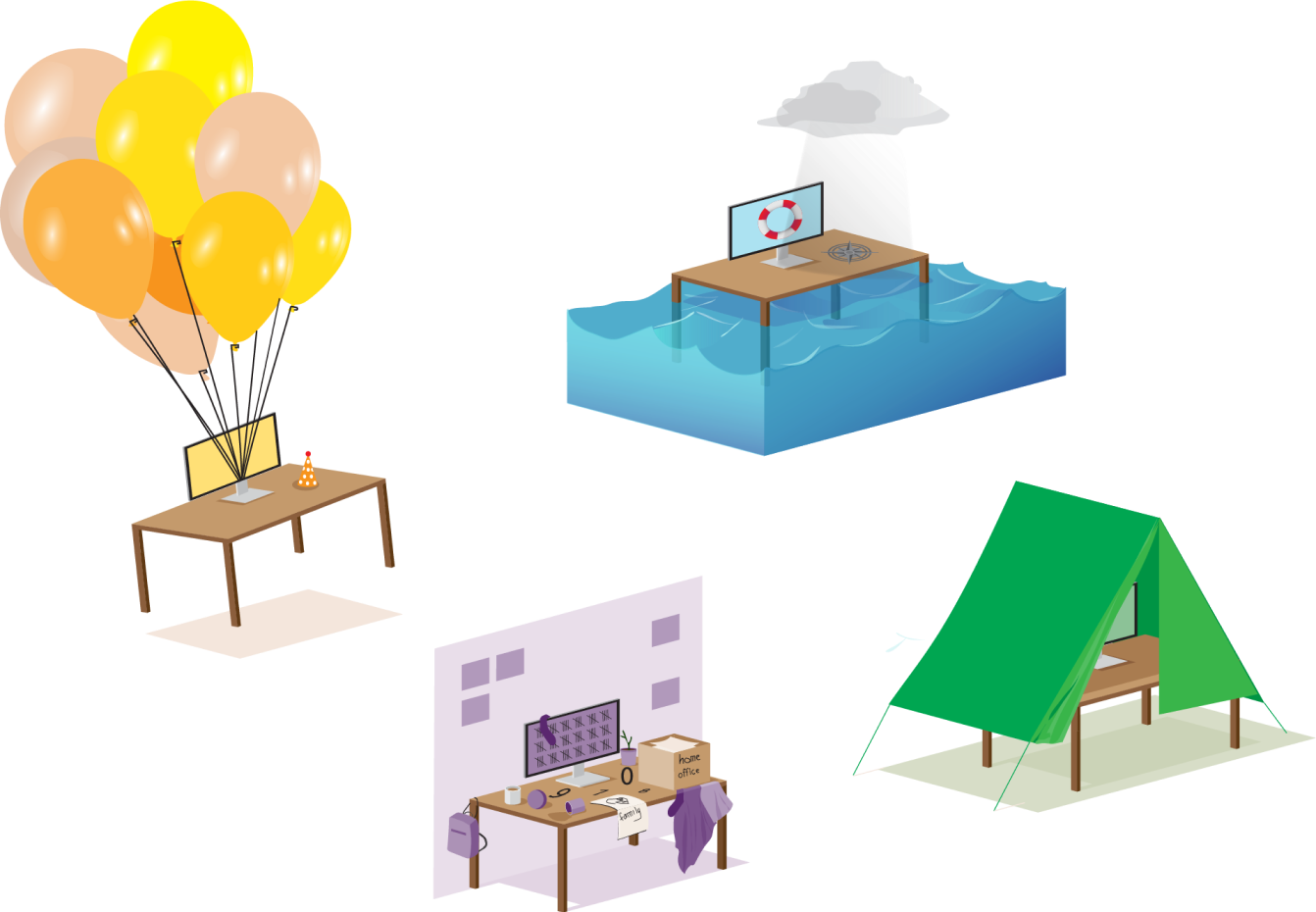Recommended ReadsMarch 14th, 2023
What does a ‘healthy’ workplace look like in 2023?


Unfortunately there have been many examples of what not to do lately when it comes to supporting a ‘healthy’ workplace, but what can we do instead? Here are some ideas from our (remote-first, hybrid) workplace, which we believe contribute to team health and wellbeing.
Reflective Practice
Reflective practice is paying attention to, critically analysing, and learning from ‘practice’ — the things that you do every day as part of your work. In other words, it’s taking the time to pause and learn from what you’ve done, before moving onto the next thing.
There are many examples of reflective practice in action at Paper Giant*, but a few goodies are:
- Written self-reflections - as part of the 6-monthly performance review process
- Project retros - where we review how the project went, what worked, what didn’t, and what we learned
- Studio-wide retros - where we reflect as a group on how the organisation is running and what might need to change
- Annual engagement survey (quantitative survey) and ‘vibe check’ (qualitative survey) - to understand how the team is feeling about their work, team, and the broader organisation
*I recommend reading Reuben’s article for a longer list!
Cultural Competence
Cultural competence describes the behaviours, attitudes, and policies that enable people to work safely and respectfully across different cultural backgrounds. We can improve our cultural competence by learning about different cultures, knowledges and identities, and the history of interaction between them.
Cultural competence is a pathway to cultural safety—a space of safety for all people to be themselves without assault, challenge or denial to their identity.
Our practice group is currently focused on the implementation of our Reconciliation Action Plan, in support of tangible and substantive benefits for Aboriginal and Torres Strait Islander peoples, increasing economic equity and supporting First Nations self-determination.
Transparency and Documentation
Documentation has come into its own as we move away from reliance on a physical office, towards a remote-first, hybrid workplace.
By ‘working in the open’, we promote a more inclusive workplace — one where part time and flexible workers can catch up on discussions they missed, and new team members can get up to speed on the particulars of how we work.
- Encouraging the use of shared communication channels for project conversation and updates (rather than private messages), where these are relevant to other project team members
- Recording studio-wide sessions where these may be useful to anyone who missed them
- Providing regular communication about the long term company strategy and priorities, as well as short summaries of any leadership meetings, and other ad-hoc updates
- Hosting a weekly Ask Me Anything (AMA) session with someone from the Executive or Leadership team, where any member of the team can turn up and ask questions
Care and Support
Owning the commitment of being a place where 'care' is a practice, not an afterthought is necessary for a healthy workplace - we take care in our work, we care about outcomes, and we care for each other.
Some of the ways to do this are:
- Providing all team members with access to an Employee Assistance Program (EAP): a confidential professional counselling and support service to help employees deal with personal or work related problems.
- Assigning a project ‘carer’ to each project, responsible for ensuring that project team members have a space to discuss the personal impacts of work, and can raise issues or direct people to appropriate support as issues arise.
- Allowing sick leave to be used for mental health days as needed
- Allocating a team wellbeing budget for things like birthday vouchers, care packs, team dinners and gifts
- Encouraging gratitude through a ‘thanks’ communication channel
What does this look like in a People & Culture role?
As the People and Operations Director at Paper Giant, my focus is on ensuring team safety, support and wellbeing, alongside efficient and cost-effective business operations, and I feel an important part of this is to model good work practices and behaviours.
In 2023, I am doing this by:
- Sharing a high level of what I’m working on each day in the Slack standup channel
- Opting out when I need headspace
- Taking a day (or a week) off to reset/recharge when I need to
- Aiming for regular-ish work hours, to demonstrate not working overtime
- Being open and approachable when I have the capacity to do so, and stepping back when I feel overwhelmed
- Asking for help when I need it
As with everything, this is all a work in progress. I’m proud of our workplace and the way we strive for continuous improvement, but acknowledge that nothing is perfect.
My hope is that each change we can adopt —both as an organisation, and individually— will take us closer to a balanced, healthy work-life.




